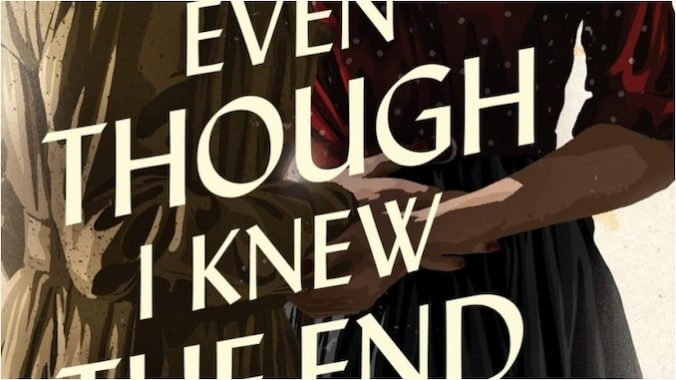Hope Against the Odds In C. L. Polk’s Even Though I Knew the End

There’s a moment, midway through C. L. Polk’s new novella Even Though I Knew the End, that captures that sense of endless hope that readers have on behalf of their characters. Helen Brandt, an intrepid private investigator and warlock, is taking a moment of introspection and thinking about a favorite novel, The Great Gatsby.
I’d read this book a dozen times, two dozen. I always held my breath, waiting for Daisy to come to him. Jay hoped every single time, and I hoped right along with him, even though I knew the end.
In a moment that gives away nothing about the story itself, Polk takes a beat to heighten the sense of hope that infuses the whole novella. There’s only one end to this story you’re reading, Polk seems to say to readers. But hope anyway. Hope, even though you know the end.
The beginning, however, is a bit of a mystery. Readers meet Helen Brandt in an alley, taking magical photos (despite an uncooperative moon) of a murder scene. Ritual markings fill the walls. Helen wants nothing to do with this case and the other murders related to it. She’d much rather spend time with her sweetheart, Edith because she knows her own time is running out. It turns out that it’s been ten years since she made a bargain with a devil, and her soul’s up for collection very, very soon. But when her client makes her an offer she can’t refuse, dangling her soul like bait on a hook, Helen starts digging into the murders and finds out that she’s in far deeper than she realized.
Helen’s voice evokes the private eye narratives of 1930s and 40s pulp (Helen’s client is named Marlowe, a nod to Raymond Chandler’s famous investigator of the same name). But where noir tales are traditionally heavily masculine, with dames and dolls and femme fatales, Polk places the majority of the story’s agency in the hands of its women. Helen navigates a society where women who love women must hide that affection in secret clubs and behind false wedding bands, where a wife must hand important medical paperwork over to their husband after the doctor gives her a pat on the head.
Despite the patriarchal structure, women do dance and love and live; they hold good jobs and work magic, both figurative and literal. There are hints at what the world could be, were they all free to grow and shine beyond their world’s limitations, if they could claim their power—even though they know the end.
-

-

-

-

-

-

-

-

-

-

-

-

-

-

-

-

-

-

-

-

-

-

-

-

-

-

-

-

-

-

-

-

-

-

-

-

-

-

-

-








































